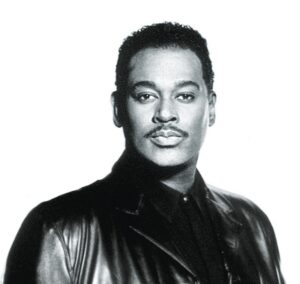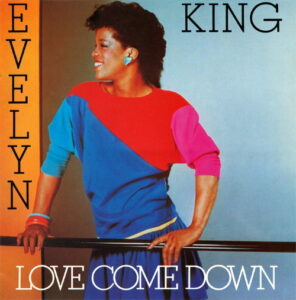We hate to pile on, but pile on we shall. R. Kelly blew it. After getting a quiet reprieve from a number of those who avowed never to listen to another R. Kelly record again and then reneged upon hearing the recent glories that are Write Me Back and Love Letter, Kelly has gone and reminded all of us why we swore never to listen again in the first place. Black Panties is an affront to all Kelly had accomplished from a re-branding and image makeover perspective; it’s as if he’d gone off his meds and the long dormant egotist had come roaring back to give everyone a defiant middle finger and remind us all of every sordid, disgusting allegation. The culprit is an entire album that is ode to the vagina, literally, and far from a pretty homage (certainly not as pretty as its inspirational source). One song uses the “n” word more than 20 times (“Right Back”), another “pussy” more than 50 (“Marry The P***y”). From its Alpha to Omega, the entire affair is a petulant adolescent on steroids and it’s rapidly becoming a bestseller, with more than 200K copies sold in less than one month. To put it in context, Black Panties is already set to more than best the “comeback” albums of Monica and Brandy in their respective first years and gearing toward Usher numbers in a month. So in the interest of our reader’s public welfare, lest they think the world is on to something they’re missing, like a new millennial Chocolate Factory, let me be one among many to assure you that Chocolate Factory this is not.
Be warned that from this point on, this review, like the album being covered, cannot help but be X-rated, since the themes of Black Panties are exclusively X-rated. What makes Black Panties a travesty set to music isn’t that the subject matter is sex, that’s half the R&B canon and nearly all of the last ten years of radio R&B. Sexual R&B is a tradition throughout the annals of music history. However, arguments that this is your children’s Millie Jackson and Marvin Gaye are greatly exaggerated; these lyrics would inspire Redd Foxx and LaWanda Page to blanche. Contrary to what R. Kelly’s camp is promoting, it’s not even a 12 Play for the new generation.
No, even the most sex positive among you would be hard pressed to defend the violence, misogyny and objectification directed toward women weighing down every cut on Black Panties. The word choices are street corner crude, with sex being reduced to “beating it up,” “tearing it up,” “smashing it,” “screwing it,” “murdering it,” “beat it until its blue,” “killing the pussy” that, metaphorical license aside, reflects an un-interrogated idea of what constitutes pleasurable sex for women and the prevailing views of women’s anatomy as something to be attacked by men for men. One song is literally titled “Tear It Up (feat. Future)” and its promissory jingo of a chorus: “Imma, Imma tear it up” is (*cough*) inspired. Women are “bitches with class” or “bitches with ass,” as “Spend That” enlightens us, and in many instances they are simply strippers made for men’s gaze as the directive “Show Ya P***y (featuring Migos and Juicy J)” and “Throw This Money On You.” With “If we ain’t talkin’ bout f***ing/we ain’t talkin’ bout nothing,” Jeezy makes it clear on “Spend That” the ONLY thing women are good for or possess of value. R. Kelly co-signs by declaring that he’s “Marrying The P***y,” not the woman, on this “sex proposal.” The braggadocio and machismo are so suffocating throughout, even on cunnilingus celebratory cuts like “Cookies” (Nabisco should sue for their Oreo brand’s protection), you’d be forgiven for believing we’re talking about a hip hop project. Black Panties isn’t entirely clear that it isn’t a rap album.
Usually an album this lyrically disturbing masks its offenses by delivering beats so infectious, so urgently undeniable that one can turn a blind eye to the regressive messaging (think the date rape-o-rific: “Blurred Lines” and “Blame It On The Alcohol”). Not so on Black Panties, not unless you were a fan of a certain brand of hip hop that rose like a weed in the concrete garden from the Midwest and South from a gratefully bygone era. The production of Black Panties is a throwback to the darkly spacious, 808 heavy, synthy, auto-tuned nightmares that dominated radio and club hip hop in the early to mid-2000s. The music relied heavy on nursery rhyme jingles, thin claps, and tinny beats that could only inspire the head to move, rarely the feet, as with “Genius,” “You Deserve Better,” and “Every Position,” where we learn that the alleged ephebophile hasn’t a favorite position, despite what earlier teen golden shower videos may have led one to believe.
Musically, only two and a possible–like a bad Spades hand, make the grade. “Legs Shakin’ (feat. Ludacris)” is a pleasant enough melody, borrowing heavily from Michael Jackson’s Thriller. At least women who “act right” finally get theirs, after all of the male pussy bashing — women who already have men, mind you, if Luda is to be believed. On the fairly decent radio-ready ballad, “All The Way,” a slumming Kelly Rowland accidentally, we’ll assume, shows up to lend credibility to a project no river dredging can resurrect, earning an unnecessary tarnish to her own good girl brand. “Lights On” and “Physical” are the closest things to something romantic, even if both match everything else on Black Panties in the subject matter of just more sex. After drowning in its pornographic excesses, lyrical repetitions, and droning productions, the whole affair is ultimately rendered boring; R. Kelly managed to make adult sex boring. Go figure.
Finally, for those who thought it a reach that the whole album is a literal middle finger to those who dared to stand up for the young women allegedly exploited by R. Kelly, girls ages 13 and up, he made the rebellious “Shut Up.” Against “haters” “all up in your business” — ignoring that the business we’re discussing is child endangerment and the haters, concerned citizens. In any case, for those who thought Kanye took the egomaniacal wedding cake, the newly sainted Kelly claims divine intervention for his criminal getaway and deems that half of the children born all over the world since the ‘90s are the result of him and his music (which, even if true, wouldn’t exactly grant one unfettered access to all the world’s teen virgins). Sigh.
It didn’t have to go this way. American music fans have long ignored and/or eventually forgiven the foibles of their resident artists, from domestic violence (Miles Davis, Chris Brown) and substance abuse (Bobby Brown and well, everyone) to adultery (Al Green, Lionel Richie, and yeah, everyone again), even ephebophilia, as Jerry Lee Lewis demonstrated after marrying his 13 year-old cousin when he was a very grown 22 (though arguably he never hit again thereafter). Surviving scathing media condemnation is the norm, as long as the artist is delivering quality product that didn’t fan the flames, keeping the music separate from the charges. For a while, R. Kelly seemed to understand that, giving defending fans such dreams as Chocolate Factory, Happy People/U Saved Me in the midst of the initial allegations and the retro bliss of Write Me Back and Love Letters after his stunning acquittal. But, maybe we were too forgiving, because with that inch is the mile that is marketed as the new 12 Play, Kelly’s pro-sex, multi-platinum solo debut. Yet, in its execution, Black Panties is more like you played yourself, playboy. Not Recommended.
By L. Michael Gipson









